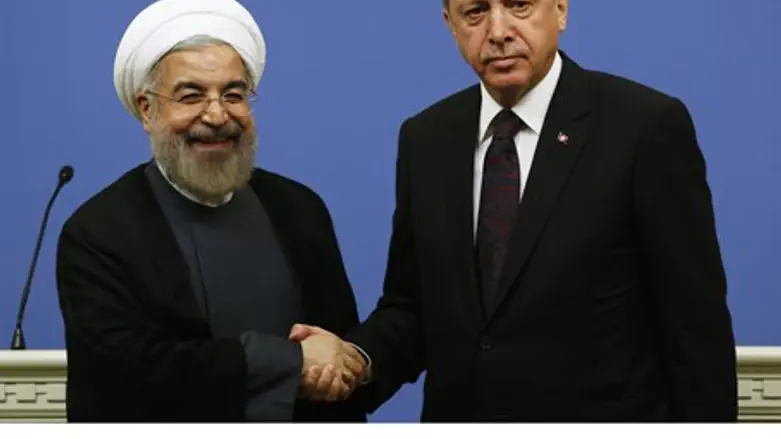
Turkey has given contradictory signs of its allegiances over the last few months. The Turks avoided for as long as they could giving aid to the Syrian Kurds of Kobane before Western pressure forced them to allow Kurdish reinforcements to enter the city and turn the fight around.
After making numerous contradictory statements about supporting or opposing Saudi and Iranian policy, that above mentioned Western pressure might indicate Turkey is giving in on years of aggressive policy toward the rest of the Middle East.
“United Arab Emirates Minister of State for Foreign Affairs, Anwar Qarqash, called the positions of Turkey (and Pakistan) on Yemen contradictory and vague,” says Gallia Lindenstrauss of the Institute for National Security Studies in a recent analysis. “In his opinion, statements coming from Ankara show coordinated views on Yemen among Iran and Turkey.”
Up until several years ago, Turkey was the largest candidate to join the European Union. After the collapse of its relationships with one-time allies Israel and Syria, could Turkey reproach the West and join the EU?
“The process is still going on, and from time to time there are small positive developments but on the whole,” Lindenstrauss told Arutz Sheva. However, “the momentum seems lost (also because of the difficulties within the Eurozone) and Erdogan's autocratic trends and at times harsh Anti-Western rhetoric make it more difficult to see Turkey as an EU full member.”
“There are of course material and political benefits to being part of the European Union, but it is more than that.”
The objection of major EU members, the dispute over Cyprus, Turkish curbs of free speech and the financial crisis of the Euro itself make expansion with Turkey extremely unlikely right now. The Armenian Genocide has also come roaring back into the picture with the Pope’s recognition last week and the European Parliament publicly stating the Turks should relent and recognize the atrocity for what it is.
Erdogan’s AKP party is an Islamist party that was once heralded as an example of successful integration of Islamist politics into a democratic system. With Erdogan becoming so authoritarian in his governance, you will seldom hear that analogy today. Still, Turkey was an extremely secular country before the AKP took power over 10 years ago.
“Turkey's love-hate relations with the West means that if the EU accession process ends in a failure, then that will also have negative effects on identity-related issues of most of the Turkish public regarding the at-least, century-long aspiration to be part of the West.”
With that solid pro-Western base, Turkey might be pivoting. Is Turkey looking to break out of its own isolation and maybe shift back toward Europe?
“It is true that the difficulties Turkey is facing in the Middle East are to some degree pushing it back to Europe,” says Lindenstrauss.
However, Turkey has gone through years of sociopolitical and cultural changes under Erdogan’s reign. There is also still no sign he will let up on the curbs to free speech or consolidation of power his presidential palace to a point that will let the country finally enter the union.
Despite the above mentioned inclinations of millions of Turks to be close to the Europeans, those changes in political culture will make the Turks much more assertive in the relationship and demand to be looked at in the same light as Europe’s other great powers: the UK, France and Germany. Perhaps their strength does not truly parallel that of the European big three, but they will want respect in terms of their foreign policy decisions and equal weight in reaffirmed relations.
“Still, it is no longer willing to be taken for granted by its Western partners and employs what can be characterized as an independent foreign policy. Sometimes is in line with the West and sometimes is much less comfortable for the West.”